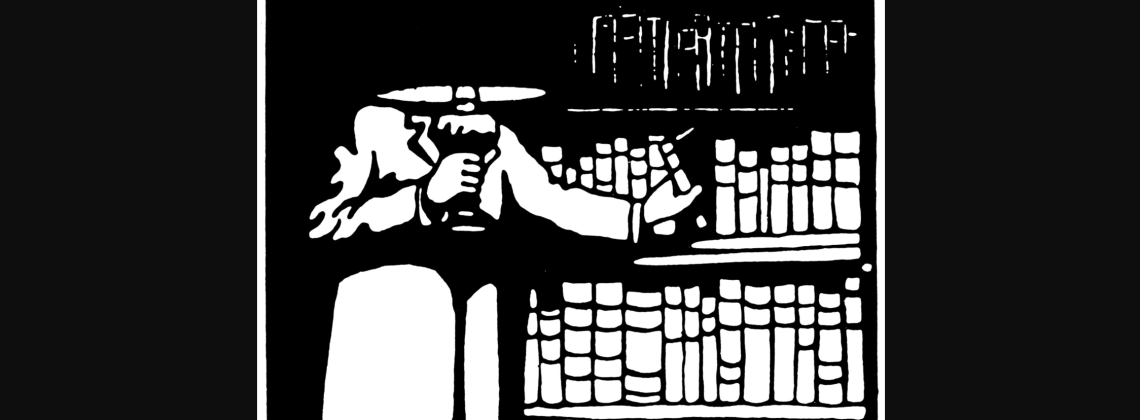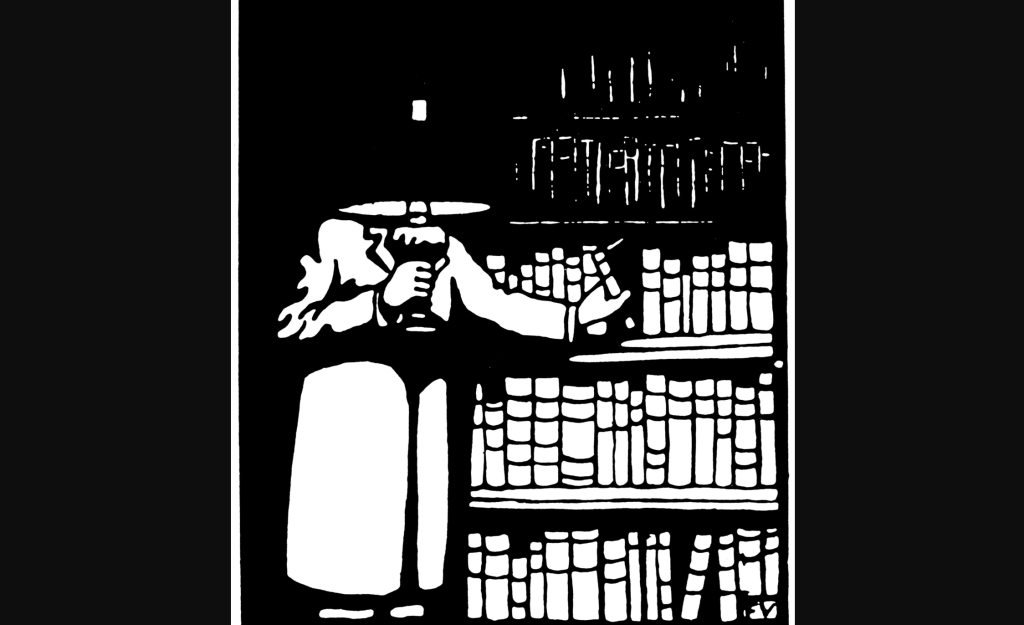

Book reviewing is a form of commentary upon which many of our greatest goods depend
This essay concludes a forum on the value of book reviews that began with essays by John Wilson, Timothy Larsen, and James Romm over the previous three Mondays. One bold premise behind this forum is that book reviews are good for promoting healthy democratic discourse. We as a society can have better and more peaceful conversations about even the most divisive and controversial of topics, if we center these conversations around good books. As so, each Tuesday this month also features a book review to continue the conversation.
*
A furtive nose descends into the pages as if in prayer. It could be that of a bibliophile, who before purchasing a book feels compelled to test for any olfactory traces of damp storage, which could spread to infect other precious tomes back at home. It’s just one tell of those who fall in love not only with books themselves but with reading them. For such a booklover might even take the very same precious volume home and proceed to mark it up not only with pencil but even—horror of horrors—pen.
Why would anyone commit such a travesty? One of my students recently told me that her librarian parent told her never to mark up a book. For a library book, that makes perfect sense. At a public beach, we remove all signs of our own snack not just to ward off seagulls but also to leave the sand pristine for other humans. Library books must be nice for the next borrower. But what about our own books? When I asked the students whether they annotated their own books, the librarian’s child seemed dutifully shocked. Why would they do that?
It’s for the same reason that we might value the book review genre itself, the question at the heart of this forum: We are part of a rich and enduring tradition of commentary. And this tradition of commentary—of responses to the thoughts, words, and expressions of others—plays a vital role in our lives.
Ideas originate, often quite literally as well as figuratively, in the margins. We were not born to a blank slate or a blank page or a blank computer screen, but to a world in which others have gone before, leaving a palimpsest with layer upon layer of thinking, writing, painting, and innumerable other signs on canvases and page-scapes all around us, from the clear to the indecipherable. The life of the mind—and the heart and soul—leaves traces. Our place of entry into cultural life falls somewhere in-between the pen strokes of some and the brushstrokes of others: Our voices soar or tremble amid the echoes of the spoken words of some and the still resounding music of others.
One of the strongest cases for the reviewing of books is that it is a way to participate in this tradition of commenting on the ideas and creations of others, a tradition with ancient antecedents. Even interpretations of epic poems recited orally are said to have differed according to performer and context. Greco-Roman philosophers spelled out what distinguished their thinking in relation to those of other schools of thought, from Stoics and Epicureans to Platonists and more. The earliest biblical commentaries extend back to the late antique period, continuing on in the writings of medieval theologians and scholastics. Examples over time and geography reveal great differences in the forms commentary can take.
The collective life of a people that aspires to be self-governing would not exist without such traditions of commentary, nor will it persist. Without the give and take of ideas, from the casual exchanges between citizens in civil society to political debate of key issues, we would have no way to consider our collective problems, assess views that differ, and arrive at public judgment. A responsive government and the consent of the governed would simply not exist in the absence of a way to forge consent without coercion. Dictates would rain down from on high, threatening not just democracy but what democracy requires to thrive: its telos, a full sense of what it means to be human.
Still, not all commentary is created equal. The book review genre gives some people pause today for a reason. Like democracy itself, it can often fall short. Rather than representing a meaningful point of entry into cultural life, it often comes in one of two limiting forms. On the one hand are many academic-style book reviews. Clustered at the backs of journals in particular disciplines or specialized subfields, they dispatch with the book at hand with a brief summary and a sentence of praise or criticism, usually on the smaller details rather than the main argument. Such reviews sometimes have more to do with insidership and gatekeeping and less with discussing books.
In what seems like a correction because it invites more public participation, commentary in the form of stars, likes, and social media posts has limits of its own. It has more to do with publicity, promotion, and even self-promotion, as publishers foist publicity onto the authors themselves. Comments by anyone anytime that treat a book like any other consumer product and do not even require that the reviewer read the book make one long for a corrective swing back to the academic specialists, who at least knew the trees, even if they did not always see the forest.
In the mid-twentieth century, though, there was another kind of book review, and it is exciting to see it coming back today. Different from the narrow professionalization and specialization, on the one hand, and book marketing and publicity and ratings according to personal likes (and dislikes) on the other, this practice harkened back to the longer tradition of commentary. At the same time, it participated in public discourse on timely issues, which meant bearing the risks of taking an unpopular stand. The so-called little magazines—the renowned Partisan Review was one of the most prominent—were known for their intellectual influence in spite of their small circulation.
Despite the existential threat to these journals and magazines represented by media conglomerates, the little magazine tradition continues today with venues such as Liberties, the Hedgehog Review, the LA Times Book Review, and others, including Current. The benefit of this tradition is its ability to take intellectual and artistic risks in exploring large questions of enduring importance and contributing fresh voices and ideas to timely debates. But the disadvantage is that at any point this tradition might stop operating, since funding is often in question.
What makes this form of the book review different from either the overly specialized academic reviews or the publicity-based or open-market consumer reviews? It is primarily the independence of spirit to be found there. Unbeholden to all the usual pressures for conformity, these editors and authors are free to tell the truth as they understand it. This is distinct from the freedom to tell the truth as they wish it to be. The blurring of any shared basis of judgment by the cult of subjective freedom as sole authority, buttressed by the sales model of truth, has too often removed a crucial element of what made commentary such a rich tradition.
It is not the form of the book review or where we encounter it—we should certainly not judge a book review by its cover if we should not judge a book that way—but how good it is. Its value lies, quite simply, in whether it connects us to the tradition of commentary that marks our quest for what it means to be fully human. Sometimes it does that by sparing us from having to read a book that separates us from that tradition. But sometimes it does that by finding that one book among the millions that connects us most closely to it.
Elisabeth Lasch-Quinn is Professor of History at Syracuse University and Senior Fellow at the Institute for Advanced Studies in Culture at the University of Virginia. She is the author of numerous essays and books including, most recently, Ars Vitae: The Fate of Inwardness and the Return of the Ancient Arts of Living (Giles Family Fund Recipient, Notre Dame, 2020), a study of ancient philosophy and modern culture. She is a Contributing Editor for Current.
“Ideas originate . . . in the margins” – wonderful.
After he retired to Rome, philosopher George Santayana would take a daily trip to the park to read. Rather than carry whatever the book was around, he’d rip out the pages of the chapter he wanted to read, sit on a bench, read, and then throw the pages in a trash-can as he left to go back home.